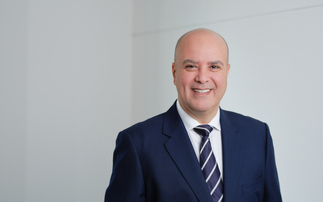On top of everything else, supermarkets are now selling life insurance. Are protection providers going to be left on the shelf, asks Samantha Downes
Supermarkets seem almost unstoppable in their attempts to provide the British public with a one-stop 24-hour shopping experience that, as well as cheap clothes and discounted designer perfume, also includes financial offerings like pet insurance, travel insurance and mortgages.
Some consumer groups have heralded supermarket sales of insurance as a much-needed kick in the rear for a stuffy, overpriced and sometimes unnecessarily complex industry. They argue that sales of the products, and more specifically the millions of pounds spent advertising them, have increased general financial awareness exponentially, and made the public realise that even when it comes to products like insurance they can still 'shop around'.
But many advisers, and indeed insurers, are now arguing that the likes of Tesco, Asda and Sainsbury's may have gone one aisle too far in trying to sell protection products.
Bargain price
Most protection experts will grudgingly concede that the appeal of buying a product like protection direct is undoubtedly its price. For example, Tesco's current advertising campaign is promising a 26-year-old female non-smoker a £100,000 term life policy for just over £7 a month. Roger Edwards, product director at Bright Grey, admits: "For a consumer this sounds like a bargain," but, he warns, "the devil with most protection products is in the detail."
Adopting a pile-it-high, sell-it-cheap policy may work with more basic financial products, claims Edwards, but protection insurance is too big a hornet's nest to sell on a direct basis. He says: "Tesco is selling the idea that these products are dead simple, and that covering yourself and your family is as simple as picking up a leaflet."
Edwards claims he has no issue with supermarkets selling protection policies; it is just that the range is too limited, he says. Most supermarkets sell either life insurance or some kind of mortgage cover. "In order to sell the products cheaply, they have to sell the cover that is the cheapest to offer, and doing this means offering the most basic product," says Edwards.
He claims that if Tesco and Sainsbury's were truly interested in offering customers the best possible 'cover-all' protection policy, they would allow them to buy what he claims are more appropriate products - like a family income benefit policy. "It pays out in instalments and it allows you to take out two separate policies for only slightly more money each month than a single policy. But of course it's not as cheap to sell," he says.
Selling more complex products that offer more than just standard cover requires advice, and advice costs. Edwards says: "Advice is by far the most important equation in protection products. People are covering themselves for something that may or may not happen, their circum-stances may change, they may have things about to happen - like having a family - that makes buying off-the-peg totally inap-propriate."
Bright Grey values the advice process too much to consider following Tesco's lead, he says. "We have no plans to sell any of our policies direct. We really want to get the message across that most people would be better paying just a few more pounds a month and going through an adviser."
Kevin Carr, head of protection strategy at LifeSearch, believes companies that sell protection policies direct are inevitably cashing in on customer naivety, and says most consumers are unaware that they can choose protection products beyond pure life cover. He admits that Tesco has gone one step further in providing mortgage payment protection insurance and life cover with critical illness; Sainsbury's, Asda and Marks & Spencer offer just life cover. But he says: "Supermarkets are constantly saying their customers are clever, that they are financially sophisticated and that they know what they are getting. Well, we say that is rubbish."
Carr claims if supermarket customers really understood what they were getting, they would not be opting for what he describes as a limited range of available protection. Like Edwards, he is adamant that family income benefit is probably the most suitable 'general' income protection policy available. "It's the best family cover money can buy and you can't buy it in the supermarkets. It's tremendous value for money," he says. "Couples buy one each and they can then put them into a trust. If one of them does die and they have to claim on it, the cash is not deemed to be a gift to them, so they escape Inheritance Tax."
No one at a supermarket is ever going to tell a customer things like that, adds Carr. So the cover someone buys at the supermarket checkout may cost less in the short-term, but could mean missing out on hundreds of thousands in the long run.
Regulation
But supermarkets and their direct counterparts are under no obligation to offer any advice with their products. If they do so, they actually put themselves within the remit of regulation and all its associated costs. And because they do not offer advice, direct providers are not affected by the Financial Services Authority's (FSA) capital adequacy regime, staff training and competency requirements, or the cost of professional indemnity insurance.
LifeSearch has managed to get 54 MPs on its side in an attempt to lobby the FSA to get it to review the non-advice regulation. "When you don't get advice you are not deemed to have been advised to buy an unsuitable product. Therefore you are not entitled to seek any kind of redress from the Financial Ombudsman. By the time somebody finds out they have bought the wrong protection product, it's too late," argues Carr.
Evidence suggests that it is too easy to buy the wrong product when purchasing direct; but this may be as much down to the nature of the way protection providers do business as to the way the products are sold.
Research by financial intermediary Terra Blu revealed that thousands of consumers who had taken out supermarket life insurance policies would not be covered if they made a claim - because, it says, the majority of supermarket policies are designed only for the super-fit and healthy. People with conditions such as high cholesterol, hypertension, asthma and diabetes are often excluded from making a claim, while those who smoke, or drink more than the advised weekly limit, are also often excluded.
Richard Gould, managing director of Terra Blu, also points out that customers may not be getting the most appropriate cover for their circumstances because supermarkets are selling life cover from mass-market providers.
All the supermarkets have tied deals with big, mainstream firms. Tesco, for example, recently swapped Norwich Union for Direct Line; Sainsbury's has a deal with Legal & General; Asda has a tie-up with Scottish Widows; and Boots sells Liverpool Victoria's protection products. Carr says: "Four out of 10 people will not be able to get normal cover because they will have something on their or their family's medical history that will require them to go through a specialist adviser."
Payment structure
But Peter Chadborn, principal of CBK, says supermarkets will be able to steal a march on advisers so long as they are seen as 'salesmen'. Arguing that advisers need to ensure they offer more options to their customers when, for example, it comes to payment structure, he says: "Will they join the battle of selling on price, or position themselves as being able to provide more than that? It's difficult for advisers to demonstrate that they provide long-term, service-based relationships for their clients if they have to chase large up-front commissions to get paid."
But Mark Wilson, a researcher at Defaqto and a former protection IFA, says protection sales cannot be compared with those of investment-based or mortgage products. "The only viable business model is to charge up-front commission. When it comes to protection, advisers are doing the best job: they just need to market themselves more."
Sue Anderson, head of external affairs at the Council of Mortgage Lenders, believes protection advisers will have their day. "People don't happily shop around for protection. Supermarkets are doing a job in giving protection a higher profile; in turn, people may realise that buying it independently is the best way."
And Mark Locke, public relations manager at Scottish Equitable Protect, says that most protection providers are still on the side of independent advice: "We're very strong in the advice process and that won't change." With supermarkets set to continue to spend millions on advertising protection, maybe advisers may steal a march after all.
But Edwards is rather gloomier. He says: "We can't reach out to everyone. Supermarkets are managing to increase the profile of protection and I suppose it's fair to say that any form of protection is better than having none at all."
Samantha Downes is a freelance journalist











